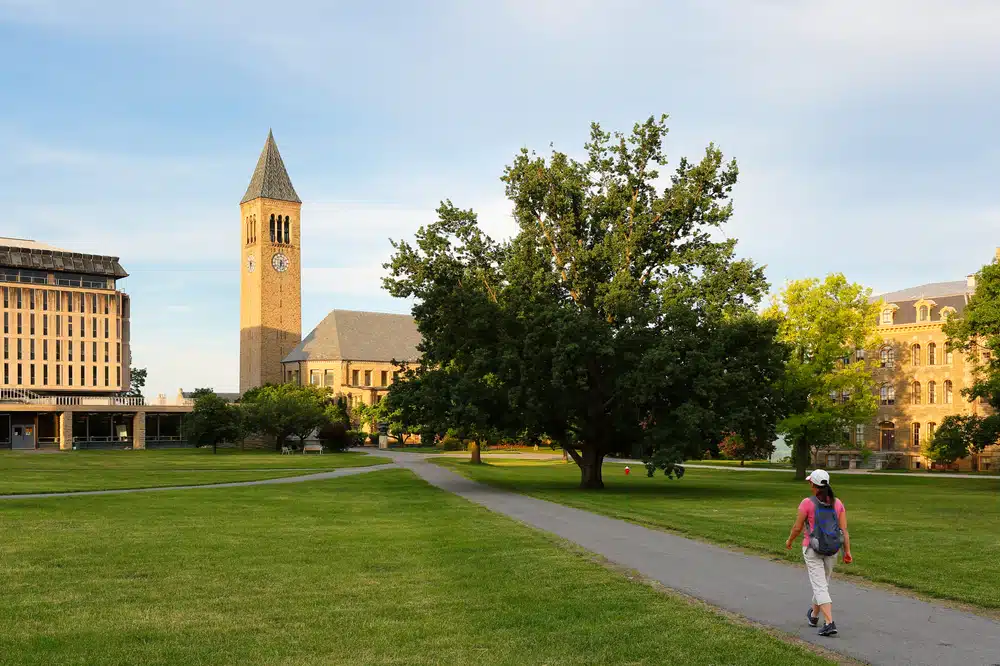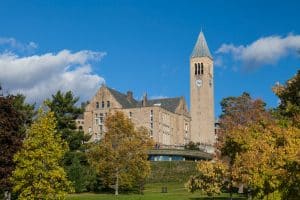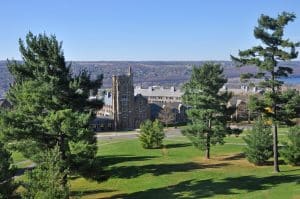Cornell’s Academic Calendar
Cornell University’s academic calendar, much like the academic calendars of other high-achieving institutions, serves as a roadmap for the entire academic year. This pivotal tool guides students, faculty members, parents, and even the community in understanding and keeping track of the many events, deadlines, changes, and special occasions that make the academic experience at Cornell unique and worth anticipating.
Whether you’re a student, professor, parent, or simply someone interested in Cornell’s academic happenings, this comprehensive guide has something for everyone. Let’s dive in and explore the Cornell academic calendar.
The Importance of the Academic Calendar
As simple as it may seem, the academic calendar plays a significant role in ensuring a smooth academic journey for all involved. It is more than just a list of dates – it provides an overall plan for the academic year, signaling important deadlines and outlining when crucial school-wide events will occur.
For students, the academic calendar serves as a roadmap, guiding them through their courses and helping them stay on track. It allows them to plan their study schedules, allocate time for assignments and projects, and prepare for exams. By having a clear understanding of the academic calendar, students can make the most of their time at Cornell and maximize their learning opportunities.
Furthermore, the academic calendar also helps students learn planning and time management, critical skills that will serve them well during their studies and throughout their professional careers. By adhering to the deadlines and events outlined in the calendar, students develop a sense of discipline and responsibility, qualities that are highly valued in the professional world.
How to Navigate the Academic Calendar
The Cornell academic calendar is regularly updated and accessible online for everybody to view. It is organized by school terms and clearly marks the start and end dates of each semester. Key dates for vacation breaks, exams, registration periods, orientation, and many other events are also indicated.
When navigating the academic calendar, it is important to pay attention to the specific dates and deadlines that are relevant to your academic program. Different schools and departments within Cornell may have their own unique events and requirements, so it is crucial to consult the calendar that pertains to your specific area of study.
If you are familiar with digital calendars, navigating them should be straightforward since it’s designed to be user-friendly, with all information clearly and logically presented. The online format allows for easy access and updates, ensuring that students and faculty always have the most up-to-date information at their fingertips.
However, if you need assistance understanding any part of the academic calendar, don’t hesitate to ask for help from the school’s administrative office. They are there to support you and can provide clarification on any questions or concerns you may have.
Remember, the academic calendar is not just a static document – it is a dynamic tool that can help you make the most of your academic journey at Cornell. By utilizing it effectively, you can stay organized, plan ahead, and ensure a successful and fulfilling educational experience.
Key Dates in the Cornell Academic Calendar
Start and End of Semesters
The start and end of semesters are, without a doubt, crucial dates in the academic calendar. Your classes, study schedules, and social activities will revolve around these dates.
The Fall semester usually begins in late August and ends in early December, while the Spring semester runs from January to May. The exact dates might vary slightly each year, so always consult the latest version of the calendar.
During the start of the semester, there is a palpable sense of excitement and anticipation as students return to campus. The air is filled with a mix of nervousness and eagerness as new friendships are formed, and old ones are rekindled. Professors introduce themselves and outline the syllabus, setting the tone for the semester ahead.
As the semester progresses, students immerse themselves in their coursework, attending lectures, participating in discussions, and engaging in hands-on learning experiences. The academic calendar acts as a guiding framework, ensuring that students stay on track and make the most of their educational journey.
Holiday Breaks and Vacations
Holiday breaks are an important part of the academic calendar. These are times for relaxation and mental rejuvenation – essential for maintaining a balanced lifestyle.
Observance of national holidays, winter break, spring break, and Thanksgiving are standard inclusions in the Cornell academic calendar. The dates and duration may change slightly annually, but they consistently provide a much-needed respite from academic rigor.
During holiday breaks, students have the opportunity to recharge their batteries and pursue activities outside of their academic pursuits. Some students choose to travel, exploring new places and cultures, while others take the time to catch up on much-needed rest and spend quality time with family and friends.
Additionally, Cornell University often organizes special events and activities during holiday breaks, allowing students to engage in recreational and educational experiences. These events range from winter festivals to community service projects, providing students with opportunities to connect with their peers and give back to the community.
Exam Periods
Exam periods are another vital part of the academic calendar. They usually take place towards the end of a semester, marking the culmination of hard work throughout the term.
Knowing when the examination periods are can help students manage their study schedules effectively. Always remember that ample preparation is key to success here.
During exam periods, the atmosphere on campus becomes more intense as students dedicate themselves to reviewing and revising their course material. Libraries and study spaces are filled with focused individuals, poring over textbooks and lecture notes, preparing for the upcoming exams.
While the pressure may be high during this time, Cornell University provides various resources and support systems to help students navigate through the exam period. From study groups and tutoring services to stress-relief activities and wellness programs, the university recognizes the importance of maintaining a healthy balance during this challenging period.
Once the exams are over, a sense of relief and accomplishment fills the air. Students can finally take a deep breath and reflect on their hard work and dedication throughout the semester. It is a time to celebrate achievements, and look forward to a well-deserved break before the start of the next semester.
Special Events in the Cornell Academic Calendar
Orientation Week
Status as a new student is inaugurated with orientation week, which is earmarked on the academic calendar. This week-long event is designed to familiarize new students with the campus, introduce them to the university’s resources, and help them start making connections with future classmates and professors.
During orientation week, students have the opportunity to attend informational sessions on various topics such as academic advising, campus safety, and student organizations. They also get to explore the campus through guided tours led by current students who share interesting anecdotes and historical facts about Cornell’s buildings and landmarks.
Furthermore, orientation week is not just about information and tours. It’s also a time for social events and activities that allow new students to meet and interact with their peers. From icebreaker games to welcome parties, there are plenty of opportunities to forge new friendships and create lasting memories.
Overall, orientation week at Cornell is an exciting time filled with valuable information, engaging activities, and the chance to begin building a sense of belonging within the Cornell community.
Commencement Ceremony
A highlight of the academic calendar for any student reaching the end of their program at Cornell is certainly the commencement ceremony. This grand event marks the successful completion of one’s academic journey, and relatives often travel from far and wide to attend and celebrate.
The commencement ceremony at Cornell is a momentous occasion held in prestigious venues such as Barton Hall or Schoellkopf Field. Graduates, dressed in their regalia, walk across the stage to receive their diplomas, symbolizing their hard work and dedication throughout their time at Cornell.
Not only is the ceremony itself a significant milestone but it is also accompanied by various traditions and rituals that add to the sense of accomplishment and pride. From the playing of the Cornell Alma Mater to the tossing of graduation caps, each element of the commencement ceremony holds deep meaning and symbolism.
Furthermore, Cornell takes great pride in giving the graduates a fitting send-off. Distinguished speakers, often notable alumni or influential figures, deliver inspiring speeches that motivate and encourage the graduating class as they embark on their future endeavors.
Attending the commencement ceremony at Cornell is a truly memorable experience that marks the culmination of years of hard work and the beginning of a new chapter in the lives of graduates and their families.
Homecoming and Other Traditions
Another exciting feature in the academic calendar is the homecoming event. It’s an annual tradition featuring a weekend full of activities that span from sports games to concerts, bringing together students, faculty, alumni, and the local community.
During homecoming, the campus comes alive with a festive atmosphere. Alumni return to their alma mater to reconnect with old friends, reminisce about their college days, and see how the campus has evolved. Students and faculty participate in various competitions, such as the Homecoming Parade and the Homecoming Court, adding to the sense of camaraderie and school spirit.
Aside from homecoming, Cornell also has a number of unique traditions that students look forward to throughout the academic year. One such tradition is Dragon Day, where students from the College of Architecture, Art, and Planning construct a large dragon sculpture and parade it across campus. This event showcases the creativity and talent of Cornell’s student body.
Another cherished tradition is Slope Day, which takes place at the end of the spring semester. Students gather on Libe Slope to enjoy live music, food, and games, creating a festive atmosphere before finals week begins. It’s a day of relaxation and celebration before the academic year comes to a close.
These traditions are fascinating aspects of Cornell’s culture and add to the vibrant and dynamic campus life. They provide opportunities for students to come together, celebrate their achievements, and create lasting memories that they will carry with them long after they graduate.
Adjustments to the Academic Calendar
At Cornell University, the academic calendar is subject to occasional adjustments to accommodate various circumstances. These changes are made with the utmost consideration for the well-being and convenience of students and faculty.
Weather-Related Changes
Given that Cornell is located in Ithaca, New York, it’s not uncommon for severe weather conditions to necessitate adjustments to the academic calendar. The region experiences heavy snowfall during the winter months, which can sometimes disrupt normal campus operations.
When weather conditions pose a significant risk to the safety of the campus community, the university may decide to modify the academic calendar accordingly. This could involve canceling classes, rescheduling exams, or extending breaks to allow for safer travel conditions.
Whenever there are such changes, students and faculty will be notified well in advance through various communication channels like email and the university’s official website. The administration understands the importance of providing timely information to minimize any disruptions to students’ academic progress.
Unforeseen Circumstances and Adjustments
In addition to weather-related changes, there may be times when unforeseen circumstances arise, necessitating adjustments to the academic calendar. These circumstances could include health crises, such as outbreaks of contagious diseases, or necessary infrastructure improvements that require temporary closures of certain facilities.
When faced with such situations, Cornell University prioritizes the safety and well-being of its students and staff. The administration works diligently to assess the situation and make decisions that minimize any negative impact on the educational experience.
During these times, open lines of communication become even more crucial. Students are always encouraged to stay in constant touch with their advisors and regularly check for updates on the university’s official platforms. By doing so, they can stay informed about any changes to the academic calendar and make the necessary adjustments to their schedules.
Cornell University understands that unexpected circumstances can arise, and it remains committed to providing a supportive and adaptable learning environment for its students. By promptly communicating any adjustments to the academic calendar, the university aims to ensure that everyone can navigate these changes with ease and continue their educational journey successfully.
Frequently Asked Questions about the Cornell Academic Calendar
How to Plan Around the Academic Calendar
Planning around the academic calendar can be quite simple. Start by making note of the key dates like term start and end dates, examination periods, and vacation breaks. Then, tailor your schedule and activities around these.
Remember to leave room for adjustments. A flexible schedule often helps students better cope with the ebb and flow of academic life.
What to Do If You Miss an Important Date
Mistakes happen, and important dates can sometimes be overlooked. If this happens, don’t panic. Reach out to your advisor or the appropriate administrative office promptly to understand the protocols and find a resolution.
Depending on the situation and the university’s policies, an alternative recourse may be available, or exceptions made in extreme cases.
Exploring and understanding the Cornell Academic Calendar is an important step in fully experiencing what the university has to offer. It’s more than just a list of dates – it’s your guide to a successful and enriching journey at Cornell University.
How AdmissionSight Can Help You with College Admissions
AdmissionSight is a college consulting firm that provides personalized assistance to students throughout the college admissions process. Here are some ways that AdmissionSight can help you:
Admissions strategy: AdmissionSight can help you develop a strategic plan for your college application process. Our professional consultants can assist with identifying schools that are a good fit for your academic, extracurricular, and personal goals and help you plan and prioritize your application strategy.
Application review: AdmissionSight can review your application and provide feedback on how to improve it. We can offer suggestions on making your application stand out and highlighting your strengths and unique qualities.
Essay coaching: AdmissionSight can help you craft compelling essays that showcase your personality, goals, and achievements. We can guide you through the essay writing process and provide feedback on your drafts to help you refine your writing.
Interview preparation: AdmissionSight can provide interview coaching to help you feel confident and prepared for college interviews. Our experts can offer tips on how to present yourself professionally and how to answer common interview questions.
Extracurricular planning: AdmissionSight can help you plan and develop your extracurricular activities to make them more impactful and meaningful. We can suggest activities that align with your interests and goals and provide guidance on demonstrating your leadership and initiative.
Overall, AdmissionSight can provide valuable guidance and support throughout the college admissions process to help you maximize your chances of getting accepted into the college of your choice.
With a high success rate of over 75%, we have built a strong network in the past decade. Book an initial consultation today, free of charge!









































